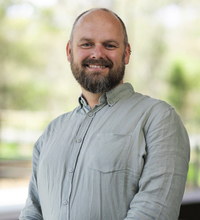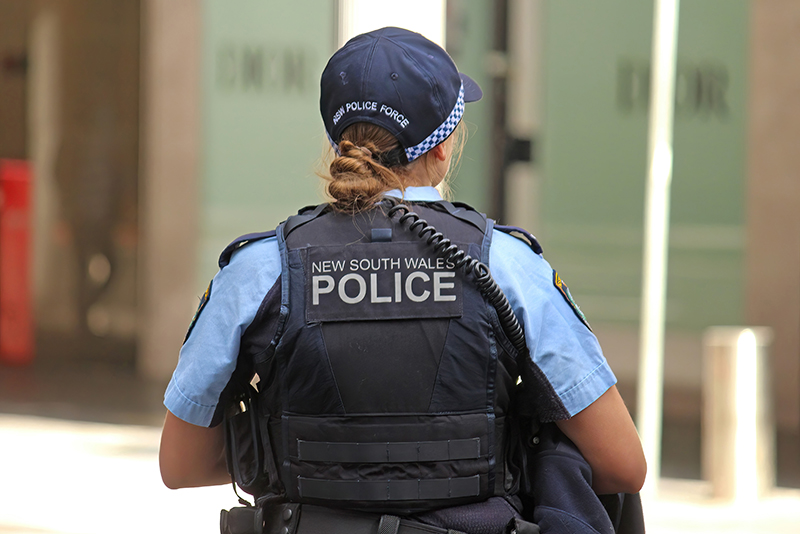In an emergency, police are often the first called to the scene. But they are rarely equipped to deal with complex mental health crises.
How do co-responder programs work? And are they effective? Here’s what the evidence says.
Following recent parliamentary inquiries and royal commissions there has been a push – led by researchers, advocates and some senior police officials – for a shift to a health-led and paramedic-first response.
South Australia is one of a number of states trialling a program based on a “co-responder” model. This means trained specialists accompany police to some mental health call-outs in the community.
So, how do co-responder programs work? And are they effective? Here’s what the evidence says.
The current situation
Mental health legislation in all states and territories gives police the power to use “reasonable force” to transport people who “appear to have a mental illness” to hospital to prevent harm.
In most cases, this involves police taking people experiencing mental health crises to hospital emergency departments, without help from mental health clinicians or paramedics.
Overburdened emergency departments have long wait times for mental health and are often inadequate at responding to people experiencing distress.
Those who need mental health support may not need a hospital stay. One study found only one in five (23%) of those taken to emergency by police – usually after expressing intention to self-harm – were admitted.
The strain on police resources is also significant. For example, in New South Wales, police now respond to triple zero calls about mental health crises in the community every nine minutes (in Victoria it’s every 10).
Criminalising mental health
Police often acknowledge they are ill-equipped to intervene in a mental health crisis. Yet, about one in 10 people who access mental health services have previously interacted with police.
The mere presence of police alone can escalate already heightened emotional situations. Police frequently lack training in mental health, with combative police culture and the militarisation of police training presenting significant problems.
Police often acknowledge they are ill-equipped to intervene in a mental health crisis. Yet, about one in 10 people who access mental health services have previously interacted with police.
These encounters can be risky and even deadly. People who experience mental health issues are over-represented in incidents of police use of force and fatal shootings.
Police involvement can also lead to the criminalisation of people with mental health issues and disability, as they are more likely to be issued with charges and fines or be arrested.
Yet the main reason police take people to hospital is for self-harm or suicidal distress, and most are not deemed to be of risk to others.
What do people with mental health issues want instead?
In our research, conducted in 2021-2022, we interviewed 20 people across Australia who’d had police intervene when they had a mental health crisis. Those we spoke to often had multiple experiences of police call-outs over their lifetime.
They told us excessive use of force by police had traumatising and long-term effects. Many were subject to pepper spray, tasers, police dogs, batons, handcuffs and restraints, despite not being accused of committing criminal offences.
For example, Alex*, said: “I was having an anxiety attack, and they pepper sprayed me. I had bruises all over my hands from the handcuffs they put on really roughly, even though I wasn’t under arrest. Then they took me to hospital.”
In our study, people with mental health issues said they would prefer an ambulance-led response wherever possible, without police attending at all. They also wanted to be linked to therapeutic and community-based services, including mental health peer support, housing, disability support and family violence services.
What are co-responder programs?
Co-responder programs aim to de-escalate mental health incidents, reduce the number of emergency department presentations, and link people experiencing mental health crises with services.
An evaluation of a co-response program in Victoria found the mental health response was quicker and higher quality than when police attended alone.
These programs, such as the one being trialled in South Australia, mean mental health clinicians (for example, social workers, counsellors or psychologists) attend some mental health incidents alongside police.
Peer-reviewed research shows these kinds of responses can be effective when compared to traditional police-led interventions. An evaluation of a co-response program in Victoria found the mental health response was quicker and higher quality than when police attended alone.
The success of programs in the United States and Canada shows many mental health crises can safely be managed without police involvement, for example by addressing issues such as homelessness and addiction with health workers, and reducing the number of arrests.
Limited by a lack of resources
While the evidence shows co-responder schemes are valued by people with lived experience, they are often limited by under-resourcing. Co-responder programs are not universally available. Often, they do not operate after usual business hours or across regions.
There is also a lack of long-term evaluations of these programs. This means what we understand about their implementation, design and effectiveness over time can be mixed.
More broadly, the mental health sector is facing significant and ongoing labour shortages across Australia, posing another resourcing challenge.
How can responses to mental health crises be improved?
Last year, the final report from the Royal Commission into Victoria’s Mental Health System recommended paramedics should act as first responders in mental health crises wherever possible, instead of police, diverting triple zero calls to Ambulance Victoria.
However that reform has been delayed, with no indication of when it may be implemented.
A 2023 New South Wales parliamentary inquiry also remarked on the need to explore reducing police involvement.
Co-responder and ambulance-first models offer an improvement. But our research suggests people with lived experience of mental health issues want more than ambulances replacing the police as crisis responders.
They need a mental health system that supports them and provides what they needed, when they need it: compassionate, timely and non-coercive responses.
*Name has been changed.
This article first appeared on The Conversation, and is republished under a Creative Commons Licence; you can read the original here.
About the Authors
 Dr Panos Karanikolas is a Research Officer at the University of Melbourne’s Melbourne Social Equity Institute (MSEI). Panos is socio-legal researcher, whose research critically examines law, medicine and carcerality. He has a background in law and has expertise across fields of disability and mental health law, policing and criminal legal processes. His PhD dissertation, completed at La Trobe University, explored experiences of involuntary psychiatric treatment under Community Treatment Orders in Australia. Panos also has experience working in disability advocacy, the community legal sector and contributing perspectives arising from lived experience of mental health services in co-productive research.
Dr Panos Karanikolas is a Research Officer at the University of Melbourne’s Melbourne Social Equity Institute (MSEI). Panos is socio-legal researcher, whose research critically examines law, medicine and carcerality. He has a background in law and has expertise across fields of disability and mental health law, policing and criminal legal processes. His PhD dissertation, completed at La Trobe University, explored experiences of involuntary psychiatric treatment under Community Treatment Orders in Australia. Panos also has experience working in disability advocacy, the community legal sector and contributing perspectives arising from lived experience of mental health services in co-productive research.
 Dr Chris Maylea is a social worker, lawyer, and Professor of law at La Trobe University. He has practice experience in mental health services as a social worker and manager, and provides advice to government and policy reform bodies. Professor Maylea’s work sits at the intersections of health, welfare and the law, and is underpinned by human rights and social justice. He is the author of over 80 peer-reviewed publications and commissioned reports, and is the author of Social work and the Law: a guide for ethical practice.
Dr Chris Maylea is a social worker, lawyer, and Professor of law at La Trobe University. He has practice experience in mental health services as a social worker and manager, and provides advice to government and policy reform bodies. Professor Maylea’s work sits at the intersections of health, welfare and the law, and is underpinned by human rights and social justice. He is the author of over 80 peer-reviewed publications and commissioned reports, and is the author of Social work and the Law: a guide for ethical practice.
 Hamilton Kennedy is a PhD Candidate at La Trobe Law School, La Trobe University, where their PhD investigation focuses on ‘delusions’. Hamilton teaches at University of Melbourne and RMIT. Hamilton does research at University of Melbourne and La Trobe University, and has practice experience in the mental health system as well as working in consultant positions.
Hamilton Kennedy is a PhD Candidate at La Trobe Law School, La Trobe University, where their PhD investigation focuses on ‘delusions’. Hamilton teaches at University of Melbourne and RMIT. Hamilton does research at University of Melbourne and La Trobe University, and has practice experience in the mental health system as well as working in consultant positions.
Picture © Rose Marinelli / Shutterstock


